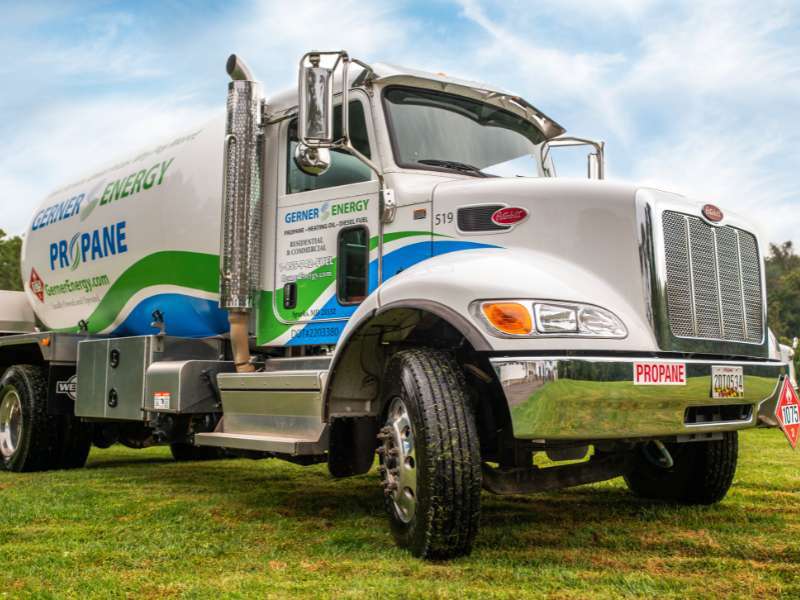February 15, 2023
Propane and natural gas are both popular fuel options when it comes to heating your home. But is one better than the other? We’ll go over the difference between the two and explain how each of them work so you can decide for yourself.

Propane vs. Natural Gas
Propane and natural gas are both used as an energy source for homes. The most distinct difference between the two is that propane is stored as a liquid in a tank, while natural gas is delivered through pipelines in its gaseous form.
Which is more energy efficient?
Propane is more energy efficient than natural gas.
BTUs (British Thermal Units) are used to measure energy output from different fuel sources. One cubic foot of natural gas produces about 1030 BTUs, while one cubic foot of propane produces 2516 BTUs. In other words, you’ll get twice as much energy out of propane than you will from natural gas at the same price.
Is one better for the environment?
Both propane and natural gas are considered “clean-burning” fuels, but only propane is considered “green.” In order for a fuel to qualify as “green,” it has to be eco-friendly before and after combustion.
In the event of a natural gas leak, you end up exposing the atmosphere to methane (a greenhouse gas). If propane were to leak out of its tank before combustion, it wouldn’t cause any harm to the atmosphere.
What are the safety hazards?
Both types of fuel are highly flammable and should be handled with care at all times. That being said, due to its infrastructure and widespread pipelines, natural gas leaks can be challenging to identify and fix while also causing a more significant impact.
On the other hand, while tanks can explode, it happens so rarely that propane is considered to be safer than natural gas.
How is each fuel delivered to homes?
Natural gas is delivered in its gaseous state through a wide network of pipelines. While there’s no need for refills and it’s accessible 24/7, the proper infrastructure must be put in place for it to work. This could mean:
- Hiring a contractor to help with any updates
- Digging up your yard to bring a pipeline in
- Converting all of your appliances to natural gas
- Paying for all of that
Propane, however, is stored in a tank in its liquid form. Tank installation comes with plenty of advantages, including the freedom to choose your own propane supplier. And as far as refills go, many suppliers offer automatic delivery options so you don’t have to worry about keeping track of fuels levels yourself.
If you find yourself trying to choose between two fuel sources for your home, some important factors to consider are cost, energy efficiency, environmental impact, safety, and let’s be honest — convenience.
If you choose propane and are interested in learning more, give us a call.

